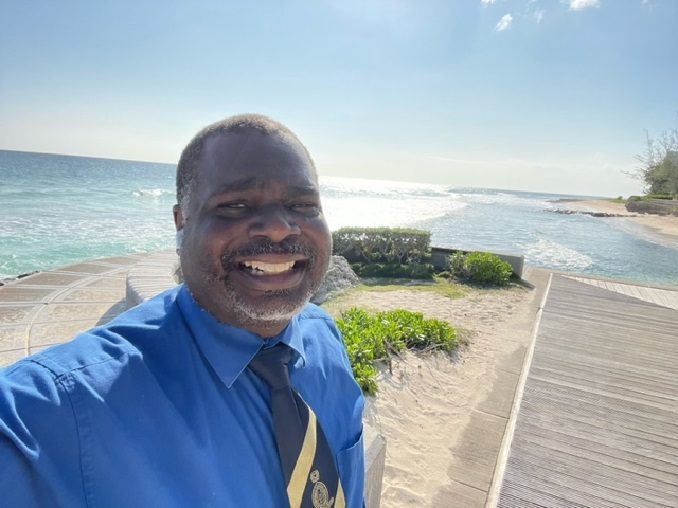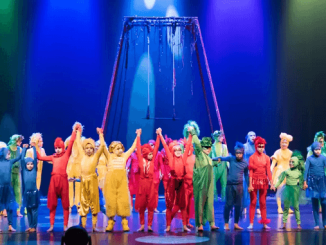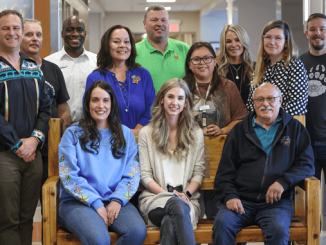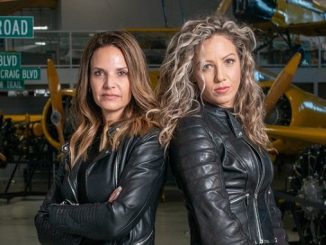Alberta Narcissistic Abuse Survivor Foundation (ANASF) is dedicated to empowering survivors of narcissistic abuse through various programs, with a particular focus on the impactful Anti-Racism Workshop Series and Mentoring Project.
We had the privilege of speaking with Dr. David Ince, the director of the Anti-Racism Workshop and Mentoring Project at Alberta Narcissistic Abuse Survivor Foundation. Dr. Ince shared insights into the project’s origins, goals, and the critical role it plays in fostering understanding, empowerment, and support within the community.

Describe your charity/non-profit/volunteer work in a few sentences.
The Alberta Narcissistic Abuse Survivor Foundation is committed to fostering a more inclusive and equitable society through our Anti-Racism Workshop Series. Our non-profit work centres on dismantling systemic racism by providing education, promoting awareness, and fostering collaborative action. Through these workshops, we aim to empower individuals, promote understanding, and advocate for systemic change in the community, contributing to a more just and united Alberta. We also aim by our work to provide empowerment for the black and other racialized communities, amplifying their voices both in dismantling the systemic racism that they experience, as well as facilitating the mentoring that such individuals can do within their own communities for others who may be more vulnerable.
What problem does it aim to solve?
The Anti-Racism Workshop Series by the Alberta Narcissistic Abuse Survivor Foundation aims to address the lack of understanding and appreciation of issues related to the marginalization of black and other racialized communities. The initiative seeks to provide educational opportunities and create a platform for meaningful participation within the community. By doing so, it aims to empower individuals from these communities and foster a more inclusive and equitable society in which everyone can contribute and thrive. The ultimate goal is to show everybody that providing greater opportunities for members of black and underserved communities does not mean that there’s less for everyone else, but rather the ‘pot can get bigger’ and everyone can grow side by side and achieve much more together.
When did you start/join it?
I joined in 2021 during the establishment of the Alberta Narcissistic Abuse Survivor Foundation and have taken on the leadership role for the anti-racism project.
What made you want to get involved?
As a black person, I can share personal experiences and challenges I’ve faced as well as ways I have been able to turn some of the difficult situations into opportunities. Additionally, the chance to mentor and enhance the quality of life for racialized individuals and communities inspired me to get involved. Raised in Barbados I had the privilege of being part of a community (majority black) that challenged me to strive to be the best and reinforced the idea that I could although coming from a small nation be still among the best in the world. The West Indies cricket team which was a world champion cricket team when I was a boy was a symbol that embodied that belief that I could achieve excellence among the ‘bigger’ nations such as England or Australia, Europe or North America. I went on to study for a PhD in energy sustainability at the University of Calgary, but along the way in spite of the many supports I had, I recognized that there were barriers that made it a little bit harder as a black person just in terms of not being seen as the traditional or typical academic. Often the perception when I work here in Canada is that the Caribbean is mainly a place for luxury vacations with sun, sea and steelpan. That tends to put us in a box and racial stereotypes closely link to that. While I certainly appreciate the fun and sun my country offers, I still consider that the respect for many majority black countries in terms of other contributions of leadership and development on the world stage is systematically underplayed.
When you are a black person existing in places that are based on European standards that correlate to ‘whiteness’ you experience the bias from more of an individual level. Upon reflection, so much of the situation can be traced back to white supremacy ideology and it struck me that this was something that not many people understood or were aware of within black, white or interracial communities. Many people seemed threatened by ideas of power and privilege being discussed and others seemed simply uncomfortable in discussion and afraid of ‘rocking the boat’.
It occurred to me that there was a need for us to overcome these barriers to conversation and see the long-term perspective of getting win-wins in the society through the sharing of marginalized people’s experiences.
The killing of George Floyd in 2020, for me brought these thoughts even more into front of mind, and I got into more writing, blogging and going on podcasts to discuss the subject. When I got the opportunity to work with ANASF, I saw lots of alignment between its vision and my own interests. I recognized that racial abuse in the way that it’s experienced is similar in its dynamics to other examples of narcissistic abuse that occur in other contexts, especially interpersonal relationships where one party in some form exerts a level of power over another. I see an opportunity where experiences of individuals and communities that experience marginalization and abuse of power in different ways, can work together to make a substantial difference.
The Anti-racism initiative has become a personal passion and focus for me, but I have become increasingly interested in the broader narcissism abuse recovery aspect as well.
What was the situation like when you started?
When I started, the relative recency of the George Floyd story; and the experience of going through the pandemic where the existence of quite a few inequalities along racial lines came to the fore, resulted in an increased awareness and more discussions around racism in general. This included both individuals ‘around the dinner table’ and Corporate Organizations who recognized the importance of expressing commitment to making changes to address systemic racism. This was positive in many respects.
There was community interest, both from racialized and non-racialized individuals, but still much of the action was performative and lacked the in-depth thought that could lead to change that would be consistent and sustainable. Additionally, there was a lack of structured forums and platforms for learning and exchanging information in a way that made sure that the important key lessons were being learnt and internalized.
How has it changed since?
Structures are now starting to be established, and people are beginning to envision the long-term possibilities, and we’re seeing more voices speaking out, more books published, more blogs, more podcasts, more videos and Organizations and Non-Profits rising up to support efforts of Black Lives Matter and others. We’ve seen increased efforts to develop structured DEI initiatives within professional and educational institutions. Sadly, as a counter to this, we have also seen the rise of the ‘anti-woke’ movement which has become vocal in its opposition to many of these programs. Still, I am optimistic that the more we have these discussions and have these dialogues in the public domain, eventually we’ll reach critical mass, and the majority in society will recognize the need for change and the role they can play in making this happen.
What more needs to be done?
To further enhance our efforts, additional personnel, financial resources, and institutional support are required. Establishing partnerships with other entities would also contribute significantly to our objectives. This is already happening to some degree but still, more co-ordination of the various efforts is needed. It’s not about competition, but rather about how we can work together to not only dismantle racism and white supremacy but also build a more equitable society in its place that works for everybody.
How can our readers help?
Readers can make a meaningful impact by spreading the word, getting involved, and sharing their own experiences, particularly those from racialized communities. They can also start initiatives on their own within their families all friends and social networks, every little bit helps. They also need to know that we are here to help and give assistance. The important thing is to start with yourself and the people around you because you can only learn by doing.
Do you have any events coming up?
Yes, we have upcoming workshops as part of our initiative. Stay tuned for details and join us to contribute to the conversation on combating racism and promoting inclusion. Email us to be added to the mailing list and be notified of workshops as they are organized.
Where can we follow you?
We are currently establishing our social media across all platforms so the best idea to keep informed is to email us at albertanabsf@gmail.com and we will add you to the email list for newsletters and updates.
PAY IT FORWARD: What is an awesome local charity that you love?
I am a proud supporter of the University of Calgary, where I serve as a professor, and the Barbados Canadian Association of Calgary, where I have had the privilege of sitting on the board and serving as Honorary Consul. Both organizations play crucial roles in fostering education, community building, and cultural connections




